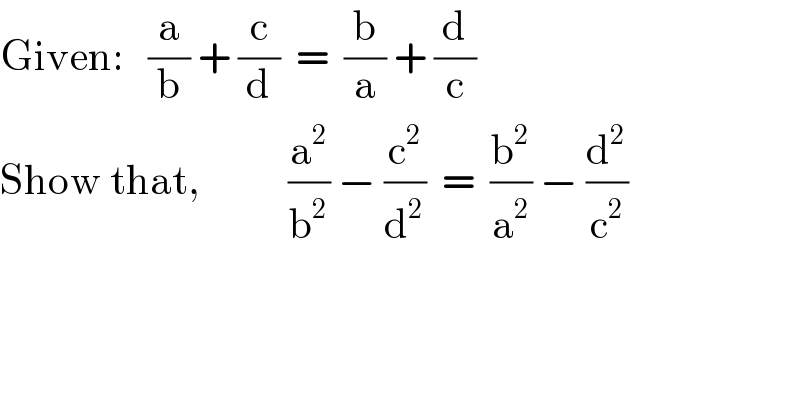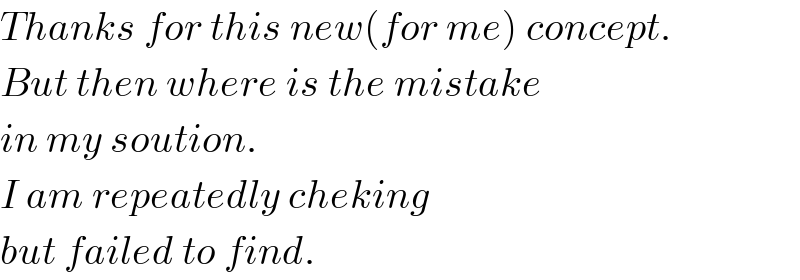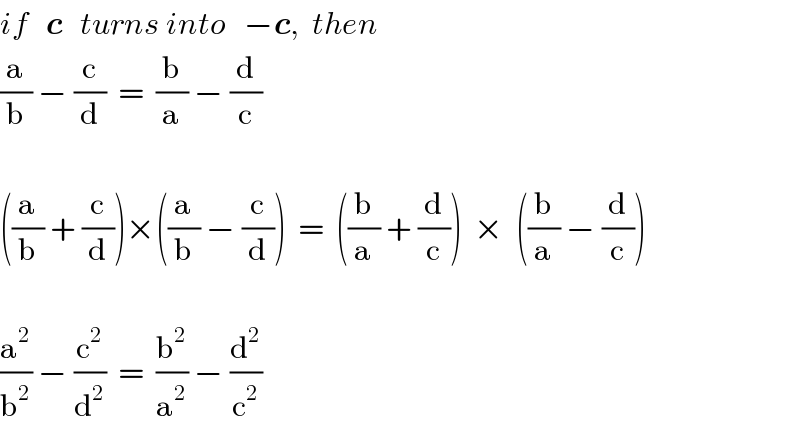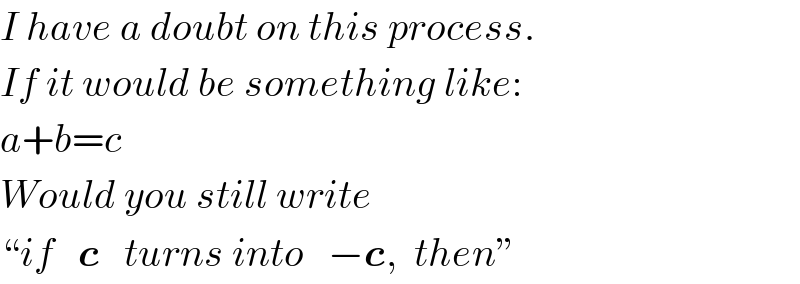
Question and Answers Forum
Question Number 71242 by TawaTawa last updated on 13/Oct/19

Answered by MJS last updated on 13/Oct/19

Commented by $@ty@m123 last updated on 13/Oct/19

Commented by MJS last updated on 13/Oct/19

Commented by TawaTawa last updated on 14/Oct/19

Answered by JDamian last updated on 13/Oct/19

Commented by $@ty@m123 last updated on 13/Oct/19

Commented by TawaTawa last updated on 14/Oct/19

Answered by $@ty@m123 last updated on 13/Oct/19

Commented by TawaTawa last updated on 14/Oct/19

